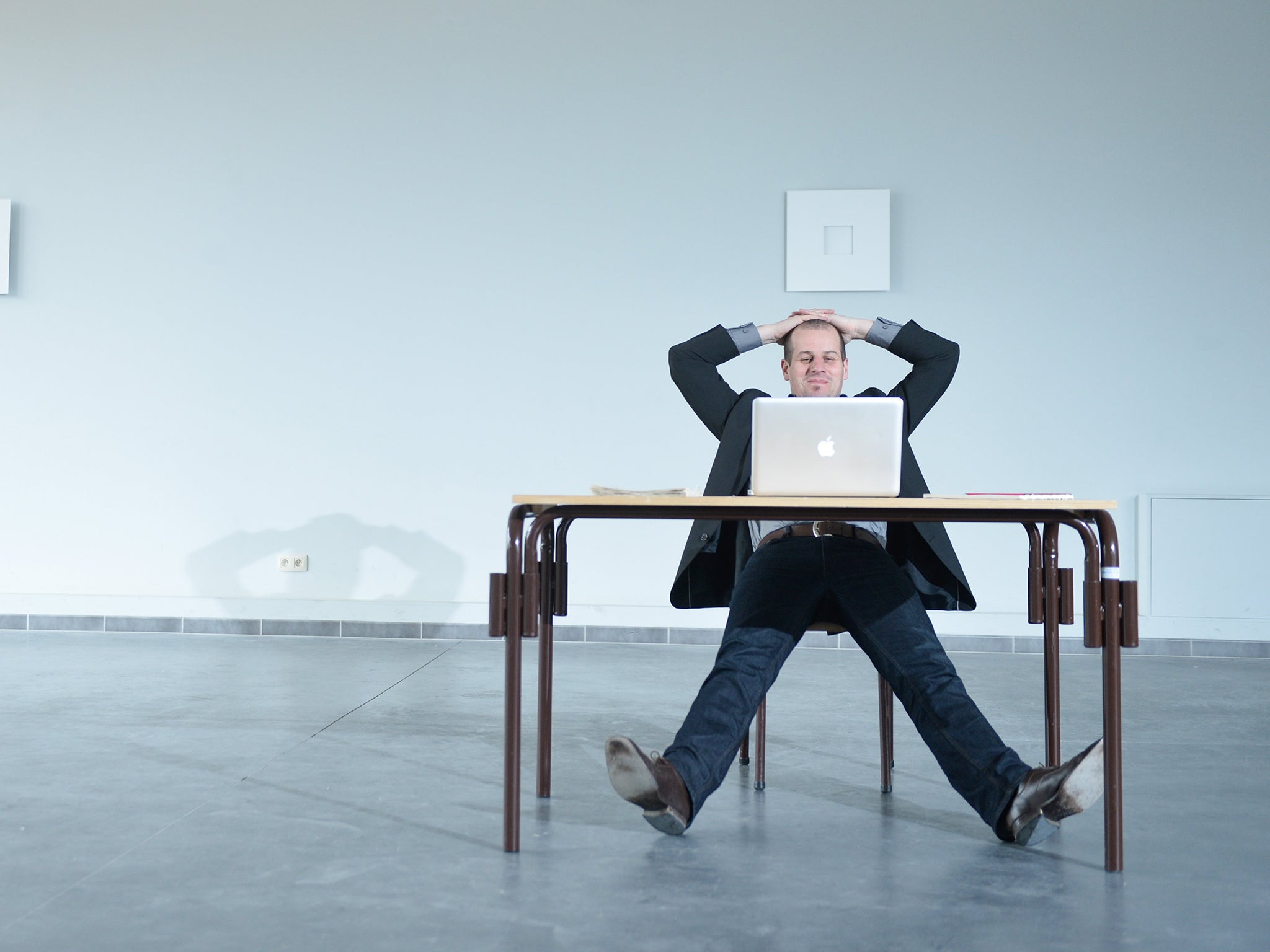The Independent's journalism is supported by our readers. When you purchase through links on our site, we may earn commission.
10 mistakes you might be making in the first 10 minutes of the workday
What not to do

Your support helps us to tell the story
From reproductive rights to climate change to Big Tech, The Independent is on the ground when the story is developing. Whether it's investigating the financials of Elon Musk's pro-Trump PAC or producing our latest documentary, 'The A Word', which shines a light on the American women fighting for reproductive rights, we know how important it is to parse out the facts from the messaging.
At such a critical moment in US history, we need reporters on the ground. Your donation allows us to keep sending journalists to speak to both sides of the story.
The Independent is trusted by Americans across the entire political spectrum. And unlike many other quality news outlets, we choose not to lock Americans out of our reporting and analysis with paywalls. We believe quality journalism should be available to everyone, paid for by those who can afford it.
Your support makes all the difference.The first few minutes of your workday are critical to your productivity for the next eight hours.
If you show up late to the office or get sucked into an overflowing inbox, you could easily get thrown off and have a hard time focusing for the rest of the day.
We did some research and rounded up 10 common traps that can ensnare you within the first 10 minutes of your workday. Read on to find out how to avoid those pitfalls and set yourself up for success.
1. Getting in late

You could be sabotaging your workday before it even begins.
A recent study, cited on the Huffington Post, found that bosses tend to see employees who come in later as less conscientious and give them lower performance ratings -- even if those employees leave later, too.
It's not fair, but it's the current reality. So try getting to the office as early as possible.
2. Not greeting your coworkers
You can set a pleasant tone for yourself and others around you by taking a few minutes to catch up with your colleagues.
If you're a leader and you don't say "hi" to your team, your seeming lack of people skills could undercut your technical competence, according to Lynn Taylor, a national workplace expert and the author of "Tame Your Terrible Office Tyrant: How to Manage Childish Boss Behavior and Thrive in Your Job."
Even if you aren't a manager, making a silent beeline for your desk could make you appear less approachable to colleagues.
3. Drinking coffee
If you're not the kind of person who downs a cup right when you wake up, you probably grab it as soon as you get into the office.
But research suggests that the best time to drink coffee is after 9:30 a.m. That's because the stress hormone cortisol, which regulates energy, generally peaks between 8 a.m. and 9 a.m. When you drink coffee during that time, the body starts producing less cortisol, and depends more on caffeine.
Once your cortisol levels start declining after 9:30 a.m., you might really need that caffeine boost.
4. Answering every email in your inbox
Once you settle into your chair, it's tempting to dive directly into the slew of messages that arrived overnight.
But according to Michael Kerr, an international business speaker and author of "You Can't Be Serious! Putting Humor to Work," the first 10 minutes of the workday should be spent quickly scanning and prioritizing emails. That way you can see if there's anything urgent and create a plan for answering the rest later.
"Checking email can become one of those tasks that make it feel like you are accomplishing things, wherein the danger is you are not attending to priority-action items, and you're letting others set your agenda," Kerr told Business Insider.
5. Launching into your work without a tentative schedule in mind
Before you buckle down, Taylor suggests making sure you have an idea of where the day is headed. That includes writing down your top priorities and must-dos for the day and reviewing your calendar.
Check to see what events you may have planned and whether you need to prepare for any calls or conferences. Otherwise, you could be caught off guard when you get a 10-minute reminder for a team meeting and you're smack in the middle of writing a project proposal.
6. Doing the easiest tasks first

Research suggests that your energy and willpower tend to flag as the day goes on. That's why it's crucial to get the important stuff out of the way as soon as possible.
Some people call this strategy "eating the frog," based on a quotation from Mark Twain: "Eat a live frog first thing in the morning and nothing worse will happen to you the rest of the day."
7. Multitasking
Because you have so much energy in the morning, you might feel like you can do a million different things at once.
But research suggests that multitasking can hurt your performance on the primary task, and that it's better to do one thing at a time. If you start your workday by juggling multiple priorities, you could set yourself back for the rest of the day.
Instead, set a positive tone by focusing on a single task for the first 10 minutes.
8. Dwelling on negative thoughts
Maybe you nearly got knocked over by a pushy passenger on your commute. Or perhaps you had a fight with your partner the night before.
Don't let those experiences distract you from the tasks that need to get done today.
Taylor suggests that you compartmentalize by putting those negative thoughts "in a separate 'box' as you start your week." If necessary, you can revisit them later.
9. Having a meeting

Morning meetings could be a waste of your cognitive resources.
According to Laura Vanderkam, author of "What the Most Successful People Do Before Breakfast," early mornings should be reserved for tasks that require considerable focus and concentration, like writing.
If you have any say in when you have meetings with your boss and coworkers, make sure they're scheduled for low-energy times like the mid-afternoon -- unless you know they require a ton of mental energy.
10. Not following a routine
Scientists say your cognitive resources are limited, so use them wisely.
If you spend time at the beginning of the workday trying to decide whether you should empty your inbox, grab a cup of coffee, or attack that project proposal, you'll have less mental energy left to sit down and work on that project proposal later.
Sticking to a routine lets your brain run on automatic for a while, so that you barely use any mental energy.
As Charles Duhigg, author of "The Power of Habit," told the Chicago Tribune: "Routine basically gives us the mental freedom to think about what's actually important. That way we don't have to think about all the mundane aspects of life."
Read more:
• There's a 'gathering storm' in the global economy
• Sadiq Khan's speechwriter quits after 'hitman' joke
• Argument for Brexit saving Britain money is rubbish
Read the original article on Business Insider UK. © 2015. Follow Business Insider UK on Twitter.
Join our commenting forum
Join thought-provoking conversations, follow other Independent readers and see their replies
Comments